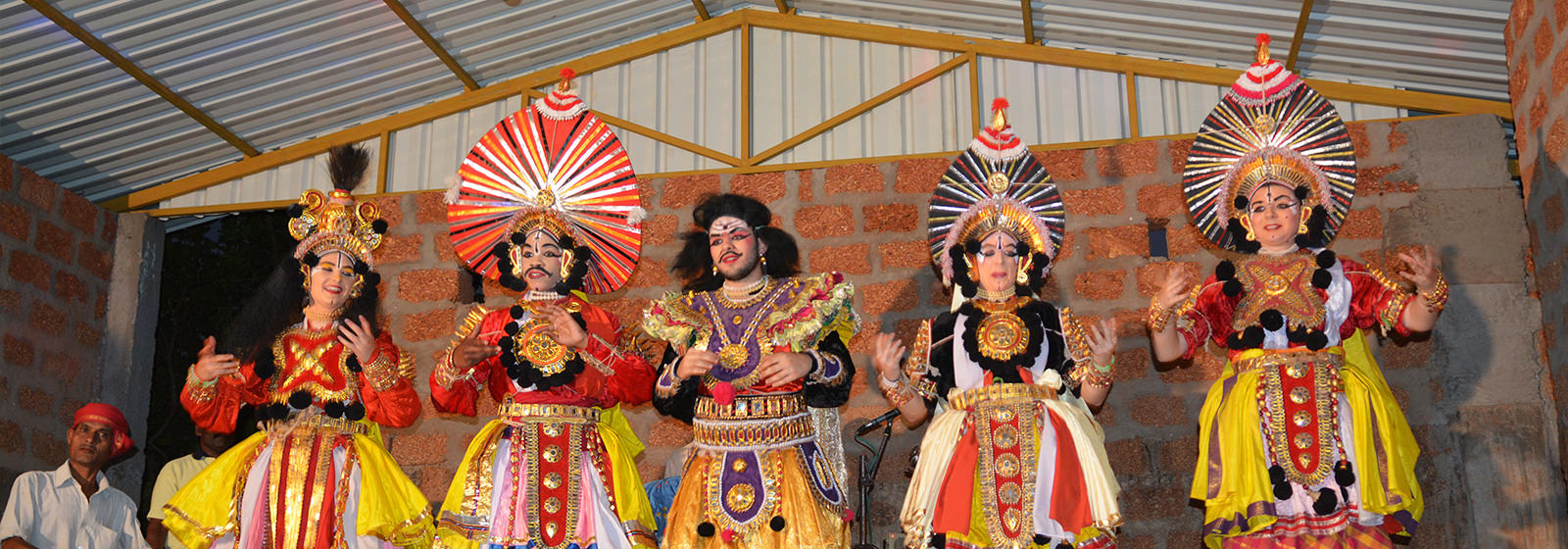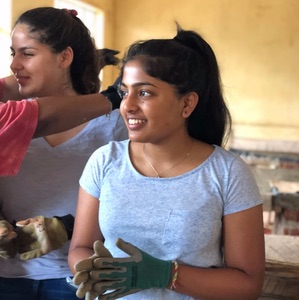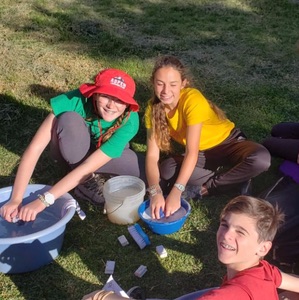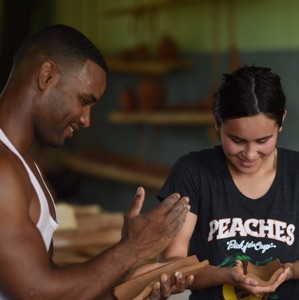One of the ways we measure impact at World Leadership School is by tracking our alumni and what they end up doing years after they complete our travel program for high school or middle school students. The stories we receive from our alums help us understand our long-term impact.
Take a moment to explore some of our Impact Reports from our 2020 Programs.
- Shanghai Hongrun Boyuan School in Chinchoti, India.
- Students from Germantown Friends School in the Sacred Valley of Peru worked on Community Projects at two local NGOs.
- Packer Collegiate Institute had two groups embark on journeys in both Puerto Maldonado and the Sacred Valley of Peru. They stayed with local families and learned from local leaders working on issues that impact their communities.
- In San Ignacio, Belize, Vail Mountain School students worked alongside their school partner to improve the playground for the students.
- Colorado Rocky Mountain School students spent time in El Paso, Texas learning about the diverse perspectives of immigration in the region.
- Students from Colorado Academy traveled to El Paso, Texas to engage with various organizations in the area and get outside of their comfort zones all while gaining a unique and diverse view of immigration issues.
- Appleby College students traveled throughout Morocco to experience its diverse culture and learn from leaders who are making a difference in their communities.
- St. Mary’s Academy students partnered with NGOs in the Sacred Valley of Peru to learn about the socio-economic issues that face the region and the things that local leaders are doing to solve them.
- In the Sacred Valley of Peru, Oakwood School students built powerful relationships with host families and spent time learning form NGOs doing inspiring work in the region.
Our Alumni Network is designed to engage past participants in lifelong learning about global issues and leadership. We also want to help you connect with local and international volunteer opportunities and a group of like-minded students and educators.
If you would like to join our growing Alumni Network, please send us a picture and a paragraph telling us about your WLS experience and how it affected what you’re doing today! Submitted stories will be featured on this page and can be sent to info@worldleadershipschool.com.
Don’t forget to like us on Facebook, follow us on Twitter, and Instagram, and be sure to check out our blog.
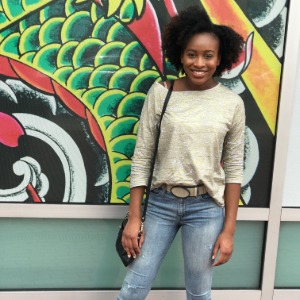
My favorite memory is from when our group visited a shelter called Annunciation House. ICE agents drop people off at the shelter, and they are allowed to stay there for a short amount of time. The occupants help run the shelter by cooking for each other and doing laundry, and it fosters a sense of community between people in similar situations. Although everyone there was facing hardships, people were smiling and trying to have fun. It was humbling to see people smile, laugh, and dance although they could be facing deportation and torn from their families. When your world is falling apart, you don’t have to sink into your sadness – even when you have every right to. That experience has helped me focus more on positives in situations in my own life.
Because we visited a lawyer and a shelter, we were able to learn from both the legal perspective and the personal perspective of immigration. We learned the laws, and we learned to put faces to them. This gave me a complete experience, so I was able to form my own opinions after having information. I learned that nothing is one sided, and not everything you hear in the media or in your community is true. In order to get accurate information, you have to go to different sources.
This trip has helped me get closer to a topic commonly discussed in politics today. People feel strongly about immigration laws, and I was uninformed about them, so I could not previously add much to conversations. I am more interested and equipped to discuss immigration politics with people in my community, and it is now something I am passionate about.
I would advise a future WLS student to come with an open mind and throw everything you think you know out of the window. These trips offer fresh perspectives, and if you are willing to delve deeply into whatever you go to do, you will come out a different and more knowledgeable person.

My favorite memory from the World Leadership School program would have to be sharing our leadership stories in our groups. I felt like I was able to learn a lot more about my classmates through these stories, even though I’d known them for nine years. Everyone stood up in front of their classmates and shared very personal stories which made me feel even more connected.
I learned a lot about Native American culture and traditions including the roles of some of the community members introduced to us and how the Pueblo’s system of leadership functions. We got a tour of the community, we worked with and got to know the students at their school, and we were taught about the issues the community struggles with, especially flash floods ruining farmland, not being supported by the American government, and the risk of losing their language. Additionally, we talked about our thoughts about who leaders are and came away with new ideas about how we can be leaders.
This was a very unique opportunity that I probably would never been able to experience outside of World Leadership School. One of my takeaways from this experience is that sometimes the best way to help out is by educating others because there is power in numbers. By spreading awareness about the hardships Native American communities face, we are able to make a difference on a larger scale. On a more personal level, I feel that World Leadership School has changed my perspective on who a leader is and what qualities make up a good leader.
I would tell future WLS students to try to really engage with the community and make connections with the students you are visiting. I learned a lot about the community through my conversations with students from Pueblo de Cochiti. I would also advise students not to take this experience for granted. It is not only an opportunity to help and learn about a different culture, but also a chance to bond with your classmates.
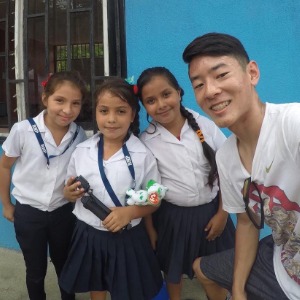
Choosing one favorite memory from the WLS program is nearly impossible. Every moment is a gift that I have treasured. From dolphin watching and snorkeling in the ocean, to going on hikes and soaking in all of mother nature’s beauty. My favorite moment or memory though is not an event, but rather a relationship I made with one of the children from Dos Brazos. His name was Axul. Right when we first met we connected, even though it was hard to communicate with each other, we knew exactly what each other meant. During the whole trip we bonded, and when it was time to go, it was a sad departure. He taught me so much in my time in Costa Rica. He taught me that sometimes you have to just enjoy the little things in life and appreciate what you have.
I learned so much from this trip. Not only did I learn things about the animals and the ecosystem of Costa Rica, I learned about being grateful. In America, everyone wants more. Americans have a lust for material objects and money, and it can sometimes get in the way of their happiness. I learned that sometimes you need to step back and enjoy the little things in life. You need to have an appreciation for what you have because what you have is enough. Even though the village people did not have much, they are happy and content with what they have. They work hard, but always have family as their top priority. I cannot wait to go back for my second and last year. It is going to be nice to go absorb more knowledge I didn’t learn the first time.
When I got back from the trip, I was truly a changed man. I began to appreciate what I had. I even began taking cold showers because I was used to no hot water. I feel like I also found a new passion for helping the less fortunate. After the trip to Costa Rica, I started a club called the RHP Basketball Closet. In this club, we collect clothes, toiletries, and blankets and donate them to the homeless down on skid row in downtown Los Angeles. Costa Rica has inspired me to help others, and I always look for solutions to be of more help. WLS changed my life, and it can change yours.
If I gave advice to future students, it is to absorb as much as you can, and do as much as you can. You may never get the opportunity to do something like this ever again. Take advantage of this opportunity and maybe you can find something that inspires you, just how my trip to Costa Rica inspired me.
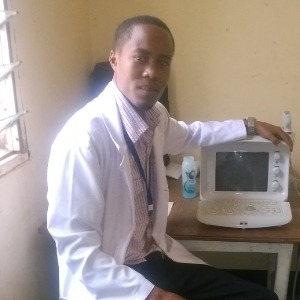
My favorite memory is a trip that we took to the Ngorongoro conservation area and to areas of Bashayy Village. Through my conversations with students from the United States, I realized that dreams without actions and hard work are like birds without wings. To be successful, you need plans, actions, dreams, and hard work!
I learned to plan for the future in order to live my dreams! Another thing I learned was time management and the value of thinking about timing for success.
Learning to plan and dream for my future was very helpful for me! It has taken a lot of hard work on my studies to become a medical imaging science student — I learned this from WLS.
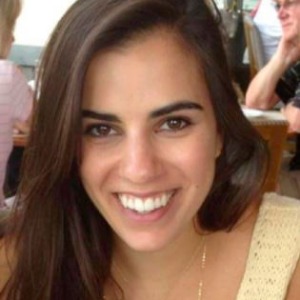
I really enjoyed being welcomed into the indigenous community in the Andes and embracing their culture. We stayed in the community for about a week and I enjoyed all that came with it: being removed from high school, taken out of my comfort zone. I felt like I was accepted/invited into their culture and lifestyle.
I learned how to better understand others. The teacher who took us there didn’t allow us to speak English and that forced me to totally immerse myself in the new environment.
This experience has made me more adventurous and willing to take on new experiences. I have loved getting to explore other cultures. I studied abroad in Italy, visited Israel, and went on a month-long backpacking trip through Hawaii. My WLS program gave me an introduction to taking on new adventures and learning from new people and places.
Just do it. Be open minded. My teacher told me before my trip that I should not return to my cozy bed at the end of it and realize how lucky I am, but rather, realize how special these people are and how much they get out of life, and that they could be the lucky ones.
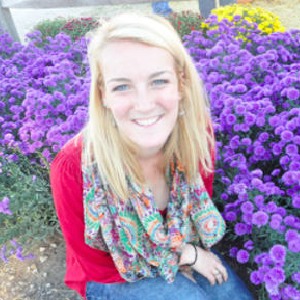
My favorite memory from my WLS program in Kenya is so hard to pick. My homestay changed my life – it was one of the scariest things I have ever done. Being driven out into the middle of nowhere Kenya to live for three days with people who didn’t speak my language or understand my customs is a daunting thing, but it was incredible. From drinking tea (chai) five or six times a day to beading with the women in the one tree’s worth of shade, from herding goats to simply letting the sunlight fall around you, all of it was beautiful. At night, we brought glowsticks for the kids at the boma, and we watched their faces light up in color and in amazement while they sang and danced with something new. I also remember the intense pride we felt looking up at the building we had literally put a roof on. There is something very satisfying in working and seeing results. Even metaphorically, that building was something we worked on a little every day, along with our relationships and our understanding of the people we were visiting. At the end of the program, we got to dance outside of the building, relishing in the work we had done, proud of everything we had built. It was a wonderful ceremony, and we felt loved and we loved everything around us so much.
I specifically remember learning about global development and global aid issues. I remember with amazing clarity the day I learned about female circumcision, a popular practice in the region we were in. I was shocked and appalled, like most westerners would be, but slowly the conversation began to include issues of where human rights and cultural inheritance disagree, and the solution was less clean cut. How can you tell a people to stop a ritual that helps define their culture? Put like that, the issue gets complex fast. In the same vein, I think the largest lesson I learned was how important blending local solutions with larger, imported, outside solutions is. In fact, the argument was made (and I came to agree with it) that local solutions are the only ones with the possibility of lasting. Change has to come from somewhere within the people, within the place, otherwise nothing will really change. As we discussed the Millennium Development Goals, what we ranked as the most important from our outside point of view was different than what our in-country coordinator thought was most important. That discrepancy right there could cause aid efforts to fail before they even start. I learned the importance and necessity of collaboration with local groups, people, and efforts to enact any sort of positive change.
My two WLS trips to Kenya have made me think a lot about service and what it means to want to help or create change. There is a big push at the end of WLS trips to focus on continuing the effort when you get home. It’s really hard, but we did try. We raised money to send a girl from our town in Kenya to high school, a goal we set when we were there. The lessons I learned about how hard global development and aid are stick with me every day. My time in Kenya motivates me, because I know how lucky I am to have the opportunities I do, and I know that I want to do something worthwhile with them. It’s easy to think that a service trip does a lot, but I think the most lasting impact my service trip made on me was an impression that a trip is only the tip of the world’s biggest iceberg, one that now I can’t ignore.
I would say to learn as much as you can while you’re there. Learn words, talk to people, hold hands with kids. Understand some of the problems in the area, ask about the possible solutions. It’s a gift to be able to spend time in a rural place in a different country. When you get home, you can google things and try to get back into the same mindset you had when you were there, but it can never be the same. There is an urgency when you’re in country, and that urgency is a gift, too. Soak it in and learn as much as you can, letting the immediacy of place and people buoy you and your thoughts. Take notes, think, and learn.
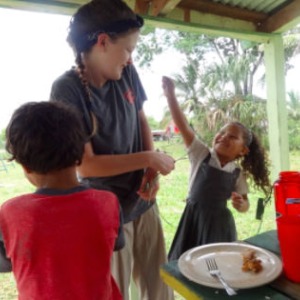
My favorite memory is definitely from our time spent working with the local school (St. Matthews Government School). I loved playing with all of the younger kids during their break time! They were all so sweet and everyone wanted you to play with them. They were so happy and very funny. I remember that a little boy and a little girl would surprise me and tickle me with a piece of grass. I also had so much fun playing soccer with the boys and girls we mainly worked with who were our age.
On the trip, I learned about leadership and different types of it. By learning these different types of leadership, we all learned which type we excel at. I also learned about the lifestyles of people in Belize. Everything there was so much different than in the U.S., and it was so amazing to see it all and learn about it. For example, one time we had a long drive, so we had a list of things that we had to find while we were on the bus. I learned that a lot of people burn their trash instead of having it taken by a dumpster service.
This trip showed me how different the world is and it inspired me to want to see a lot more of it! It is fun to go to a foreign country and stay in a nice hotel or resort, but I think it’s even more fun to see what the country is like beyond the resorts, and this trip made me want to do that more. I learned so much in Belize from the children at St. Matthews and what their life is like day to day. By staying in more local places, we were able to explore so many different areas and see so many amazing things. I don’t think the experience would have been the same if we had gone to Belize and stayed in a resort.
The best advice I could give is to try everything that you possibly can while on the trip. There are things that might take you out of your comfort zone, but that is what makes the experience so fun. I remember I was a bit afraid of going on the night snorkel, but I knew that if I didn’t I would always regret not doing it. The opportunities we had in Belize could be once in a lifetime, so I wanted to take advantage of them while I had the chance. And I am so glad I went night snorkeling because we saw an octopus, many different fish, and even a moray eel! I would just say to try everything that you have the opportunity to do. If that means trying an exotic food or climbing up a giant Mayan ruin, don’t be afraid. Just do it, and you will be so glad you did!
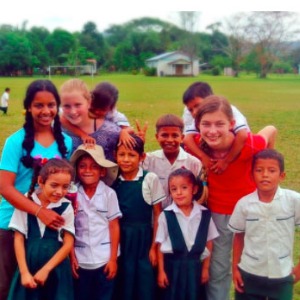
My favorite memory from the WLS program was meeting some children from St. Jude’s School. They were so full of life and energy. Anything that I took for granted before this moment was gone when I saw how thankful and excited the children were to see my fellow classmates and me.
I learned to never take anything in life for granted. Our cellphones, our school, our fresh food and water, are all things I thought were automatically given to us, but I had no idea was that it was a privilege and that happiness comes from much more than these things.
This honestly opened my eyes. I saw how thankful children were just to see us. This summer I am working with underprivileged children and I wouldn’t be without traveling to Belize last summer and meeting the local leaders and students in the Maya Village.
Don’t be afraid to try new things. This may sound cheesy, but always try something new. In Belize I was afraid of snorkeling, afraid of heights, afraid of simply getting hurt. However, with support from my friends I overcame all of my fears. Snorkeling was the most fun I had all trip and I would never of snorkeled on my own time. If you are ever given the opportunity to take a WLS trip you should go. Otherwise, you might regret it.
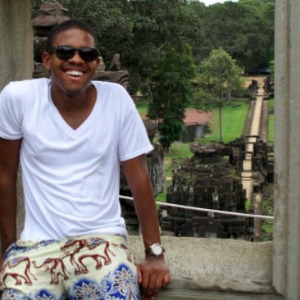
My favorite memory of the WLS Program was arriving to Ollyantambo and being welcome with warm arms. Additionally, the entire experience was authentic. From eating the same food at the same table as the family, to having them gracious enough to host us in their homes, it was truly a remarkable experience.
One thing that proved valuable to me was that I truly got to see and experience a completely different way of life. Traveling is my favorite passion, and I always travel when I get the chance. To be able to see and experience a culture with people who truly want you to have the best experience possible is the best!
Traveling to Peru (first time in SA!) was definitely a jumpstart to me catching the travel bug. I definitely want to return and see the impact that we were able to make while working hard to build the structures that allowed the women to practice their tejido.
The advice I would give to a WLS student would be to have an open mind. It can be a difficult transition, but is one of the most rewarding experiences ever!
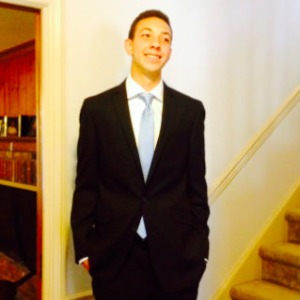
My favorite memories from the WLS program were with my host family. In my first year, I spent a lot of time playing soccer and watching a TV show called Combate, but also talking about religion and history. In my second year, my host family and I played music and danced, and played with trompos (tops). At the end of each trip I remember thinking it was incredible how strong the bonds were between me and my family, even though we only had two weeks together.
The biggest thing that I picked up was an entirely new perspective on life. I learned just how much I took things for granted, but more importantly how little the luxuries that I was so accustomed to actually matter. I found that the locals in Ollantaytambo were typically happier and more content with themselves and their lives than most of the people I knew back at home, even though they had significantly less material wealth. This sparked a reflection within myself about what is truly important in life, and changed my outlook on the world.
In addition to what I mentioned in the previous question, the WLS trip gave me a more global perspective, and my Spanish improved significantly. After going to Peru, my priorities and the way I look at the things I have to do have shifted, and I have come to believe that there is truly something good in every situation.
I would say that the best way to get the most out of your trip is to talk as much as you can to the local people. At first it will be uncomfortable, yes, but after some time it gets easier and you can start to really build relationships with the people there, and you can learn a lot from them. Plus, you get to work on your language proficiency while you do it.
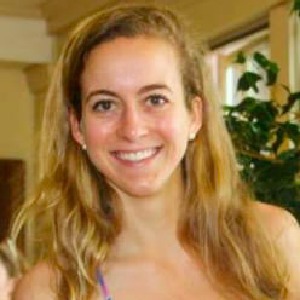
It was 4:30 in the morning and I was cold and sleepy. I stood in the dark with a friend as we waited outside Señora Panchita’s door. We were in Ollantaytambo in La Valle Sagrada, Peru, and we were tired from the rewarding – but exhausting – physical labor of the past few weeks: we were working with WLS and Groton School to help convert a trash dump adjacent to the local elementary school into a sustainable garden.
The door flew open and we were swept into hugs, then ushered inside with an energetic stream of chatter: “¡buenos días lindas! ¿qué tal? ¿cómo están? ¿cómo durmieron? vamos, vamos…” and we couldn’t help but grin. Señora Panchita led us to the room in the back where she and her husband had already been working for well over an hour that morning, and we jumped in to help. Those next few hours we mixed and rolled and cut and spilled and tasted as we learned how to bake the beautiful, crackling, delicious bread we’d been eating every morning while in Peru.
As the sun was rising we carried the cloth bags to the market-place, packed to the brim with fresh bread, and amidst the many sales I noticed Señora Panchita giving bags away, here and there. At first I was confused – she and her family had almost nothing to spare and had spent hours making this bread – and then I realized that she knew these customers couldn’t afford to pay, and so didn’t even think twice. I had never seen such unbelievable generosity. That morning I came away having learned much more than merely how to bake bread.
I learned what poverty can look like, what a yearning for education can look like, what unconditional love can look like, what real hardship can look like. I learned to understand other cultures – and I learned from these other cultures – and I learned to share my own beliefs. I learned that I can help, and that the impact I can have goes far beyond the mortar I fling and the bricks I pile: going with WLS to these communities, I learned that my choice to connect with host parents and host-siblings and other students at the schools in Ollanta or in Arusha makes a powerful statement. It brings hope to the communities, and changes us for the better.
Going to Arusha and Ollantaytambo radically expanded my worldview. I have been incredibly lucky in my life: I’ve never had to wonder whether there would be food on the table, whether the roof would cave in, whether I would have enough money to pay for school fees. Learning about other cultures and ways of life in a textbook can only go so far, and it completely pales in comparison to going with WLS to a community, living there, and committing to help make a difference.
Say yes to everything! Go on every adventure, offer to help whenever you can, try every new food, always participate – throw yourself into the experience and you’ll come away having learned and grown and, hopefully, with no regrets.
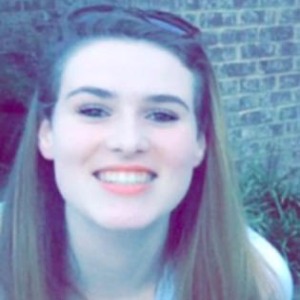
My favorite memory was getting off of the plane in India after so many hours in the air, and meeting the three leaders who we would spend the next two weeks with. It was definitely not my favorite memory coming right out of the program, but feeling the initial connection to them was so important to the rest of my trip, and it grew so much stronger as the two weeks progressed.
I found skills that I didn’t know I had that actually helped me decide on my major in college. I also learned how quickly you can form very meaningful bonds with people you had just met (the WLS leaders, and some people from my high school that went on the trip also).
It has helped me decide to add Business Management to my major, and has made me even more interested in going abroad to do community work than I had been before! This summer I plan on spending a month in Nicaragua to follow the values, skills, and lessons that WLS taught me in India.
I would say that anyone involved with the WLS should be excited rather than nervous, and should be ready to jump into something he or she has never done before, and to be willing to say yes more than no/be open to anything and everything that comes across your path during the trip. Not being afraid of participating in anything was so important to my experience in the program.
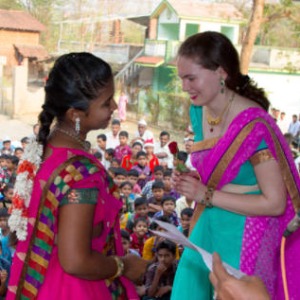
I gained so many new experiences from my WLS program that it is hard to pick just one favorite memory. When I think back to the best parts of the trip, however, one memory especially comes to mind. On the second night of my stay in Chinchoti, I sat outside on my homestay family’s porch, with two of my friends from school, who were in the same homestay. Yamini, the twelve-year-old daughter of the family we were staying with, and one of the most talented dancers I have ever met, was sitting with us when two of her young neighbors joined us with an English textbook from their school and a small chalkboard. The kids were as happy to hear us read from the book as we were to spend time with them. After reading through most of the book with them, all of us took turns drawing pictures on the chalkboard and teaching each other the words in our languages for the things we had drawn. This quiet evening spent connecting with some of the children of the community was so powerful. I know that I will remember it forever.
I learned more than I ever expected to on this trip. First of all, I made new friends, was pushed out of my comfort zone, and learned about a culture that was completely new to me. I also learned that even with a language barrier, meaningful connections can be made with other people. Before the trip, I was worried that I would not be able to communicate with my host family, but after the first night, we began to get to know each other even though we could not speak each other’s language. I was glad that this program gave me the opportunity to learn about the similarities and differences between my home in Rhode Island and Chinchoti, a community halfway around the world.
Over the course of my two weeks in India, I grew more than I had all year. I had never even been to a sleep-away camp before when I found myself in India, and by plunging into a culture very different from my own, I was pushed outside my comfort zone in ways I had not expected. Over the course of the trip, I matured more and was touched by the kindness of the people I was privileged to meet. My life-changing trip to India also instilled in me a newfound love of travel that drove me to apply for a scholarship to study Inuit culture in the Arctic with Students on Ice. My WLS program gifted me with a passion for travel that led me to visit places I could only imagine. I know that I will always be grateful for this experience that left me with a fresh perspective on our complex and vibrant world.
I would tell a future WLS student to try to make the most of every moment of their program. Some of my favorite parts of the trip came from when I was able to try something new and was willing to go outside of my comfort zone. I would also recommend really getting to know your host family and spending time with them. Overall, I would say that being positive, open-minded, and interested in experiencing as much of the program as possible, leads to a great trip!

